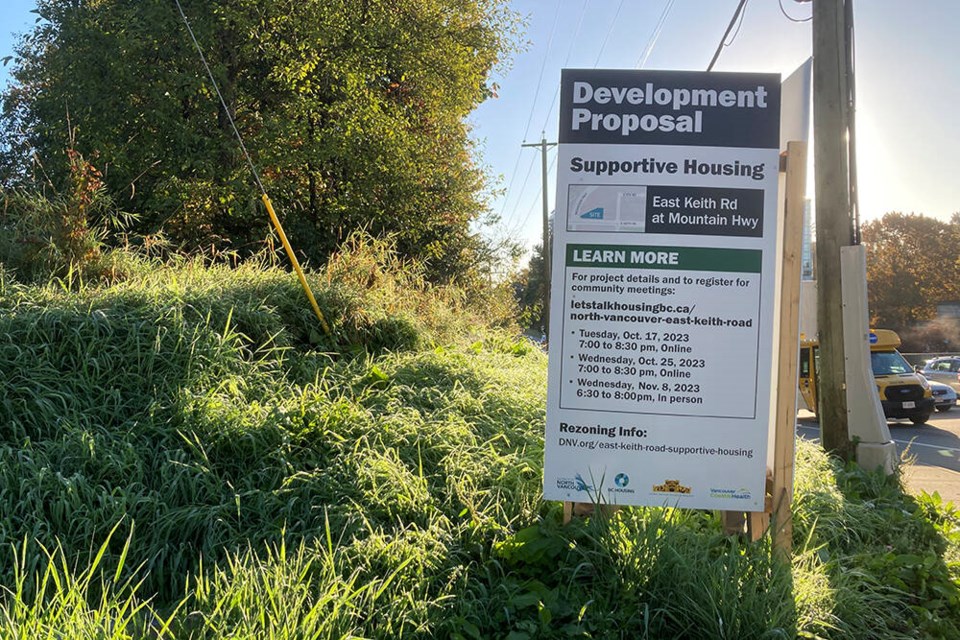At 9:43 p.m. on Monday, the longest public hearing in the history of the District of North Vancouver came to a close.
After listening to more than 170 instances of people expressing their thoughts for around five minutes, over the course of five evenings, council voted to end the public hearing for a proposed supportive housing project at 1200 Keith Rd.
If approved, a six-storey building will go up on the now-vacant lot with 60 studio apartments and five complex care units for people on the North Shore who are at risk or experiencing homelessness. The development would receive funding and operational support from BC Housing and Vancouver Coastal Health. And management would be handled by Lu’ma Native Housing Society, which currently runs the temporary supportive housing at the former Travelodge motel site on Capilano Road.
After listening to a number of second- and third-time speakers on Monday evening, and denying some a fourth opportunity, Mayor Mike Little asked but found no more who wished to speak on the matter. With the hearing finally concluded, he reminded the audience that they could no longer contact council about the project.
The issue is set to come back to council on Feb. 5, when Little and district councillors will make their arguments and decide if the plan should go ahead.
This Monday’s meeting was mostly attended by repeat speakers expressing their disapproval of the proposal. Although Little warned speakers not to re-hash past statements, many followed a familiar formula of agreeing that supportive housing is important, but that this project should not be built in this location.
Returning speaker Simon Bodlack said he had heard that police incidents had spiked around the Travelodge site after it was converted to temporary housing, but was unable to get data from the district’s community policing department. “So I submitted a freedom of information request to obtain the statistics,” he said.
According to that data, North Vancouver RCMP were called 33 and 36 times per year in 2018 and 2019, when the property was still a motel. When units started being used as supportive housing in 2020, the number of annual calls increased to 123, Bodlack said. By the end of 2022, when the balance of the units had been converted to social housing, calls to police numbered 165.
“I originally spoke on behalf of 38 signatories who live in the secluded area immediately east of this project, and one of the biggest concerns was safety,” he said. “I want to again express gratitude to this council for diligently hearing our concerns and hope that these statistics will help you decide to defeat this project.”
Current proposal cannot be modified, mayor says
A few people came to Monday’s meeting to voice support for the project. In response to an online petition against the development – which did not meet the district's standards as an official survey – community resident Jill Walker presented a similar Change.org petition in support.
“Those of my generation whose homes have made them wealthy should be thinking of those less fortunate who have no hope of getting into a home unless municipalities assist by building more supportive housing,” she said.
Staff also answered some clarifying questions from council, including if the proposal could be modified to include multi-occupant units.
“BC Housing has indicated the proposal before council is what would be funded, and other proposals may not be funded,” said Dan Milburn, district general manager of planning.
It was also asked if the proposal could be changed to prohibit substance use.
Mayor Little provided further clarification: “The very clear response from BC Housing … was no, the project would not proceed.”




